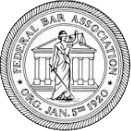What is a 601 waiver and what’s the difference between a 601 and 601a?
A 601 waiver is filed on the Form I-601. It is an application to waive (or have forgiven) something in your record that makes you inadmissible. Inadmissible means that you cannot be allowed in to the U.S. for some reason. Not everything can be waived but a lot of things can. Once the waiver is approved, you are then considered admissible.
Things in your record that would require that you apply for a 601 waiver are often immigration violations or criminal history. The most common immigration violation needing to be waived is unlawful presence in the U.S.. Time in the United States without lawful immigration status is counted against you. If someone is in the U.S. for 6 months to under a year without status and then leaves the U.S. is inadmissible (or cannot be allowed to enter the U.S. lawfully) for 3 years. The most common is that someone is in the U.S. for over a year without lawful immigration status. So, if you’ve been in the U.S. for more than a year with no status or out of status and you leave to your country of birth to apply for a green card at a U.S. embassy or consulate, you will need to apply for a 601 waiver.
Other things needing to be waived is criminal history. Not all convictions require a waiver. But some do and the question is whether your state conviction fits in to certain federal categories. The most common federal categories that require a 601 waiver are crimes involving moral turpitude (AKA “CIMT” or “CMT”) and controlled substance offenses. Some of the more common crimes involving moral turpitude are fraud offenses (such as taking identity of another, criminal impersonation, fraud, possession of a forgery device), aggravated assault, endangerment, and theft offenses.
A controlled substance offense is a conviction relating to a controlled substance or a drug. But not all controlled substance offenses can be waived, in fact, only those that relate to 30 grams or less of marijuana. So if you have a conviction for possession of marijuana or possession of drug paraphernalia and that conviction is related to 30 grams or less of marijuana, it can be waived with a 601 waiver.
But just because we may have named your conviction above, it doesn’t mean that you will have to apply for a 601 waiver. Some aren’t depending on the specific subsection of your conviction or the individual circumstances of your case. This list does not include all reasons why you may need to apply for a 601 waiver. The best advice is that you have one of our experienced attorneys review your immigration and criminal history.
The difference between a 601 waiver and a 601A waiver is that one is applied for from outside the United States and the other is applied for inside the United States. The 601 waiver is applied for while the person is outside the United States and in their home country. The 601A waiver is applied for while the person is inside the United States. It is applied for on the Form I-601A. If you can apply for the 601A waiver inside the U.S., this is great because it allows you to be with your family while the waiver is being processed, which can sometimes take up to a year. The 601A waiver is relatively new and has been around for a couple years already. In order to be eligible to apply for the 601A waiver inside the U.S. you cannot be in active immigration court proceedings and also if the only thing needing to be waived is unlawful presence in the United States. If someone doesn’t fit this criteria, then they will have to apply for the 601 waiver from their country of citizenship.
Let’s say you do need to file either a 601 waiver or 601A waiver. To get either waiver approved you have to show that your U.S. citizen or lawful permanent resident spouse or parent will suffer extreme hardship if it is not approved. Extreme hardship can be proven by showing how they will medically, psychologically, financially, and/or emotionally suffer if your waiver isn’t approved. You will submit medical, psychological, and financial records, and anything else that shows how they will be affected if they were in the U.S. without you or if they went with you to your country of citizenship. Unfortunately, the law does not allow someone to apply for a waiver if they only have children who are U.S. citizens.
Don’t be alarmed by the requirements of the waiver. Our clients have had great success getting their waivers approved with the help of one of our experienced attorneys.

REPRESENTATION YOU DESERVE
Here at Alcock and Associates our team and staff are dedicated to helping and representing YOU. The first step is to understand your case. We will take the time to get to know you and your legal situation so that we are best able to answer all of your questions. After your initial consultation with our attorneys, you will know what you are facing and what can happen to your case.
EVERY CONSULTATION IS COMPLETELY FREE AND COMPLETELY CONFIDENTIAL.
Top Rated Phoenix Attorneys






It is essential that you are aware of our website policies, as they detail how we protect your data and ensure transparency in the use of your information. Please read our Privacy Policy.
